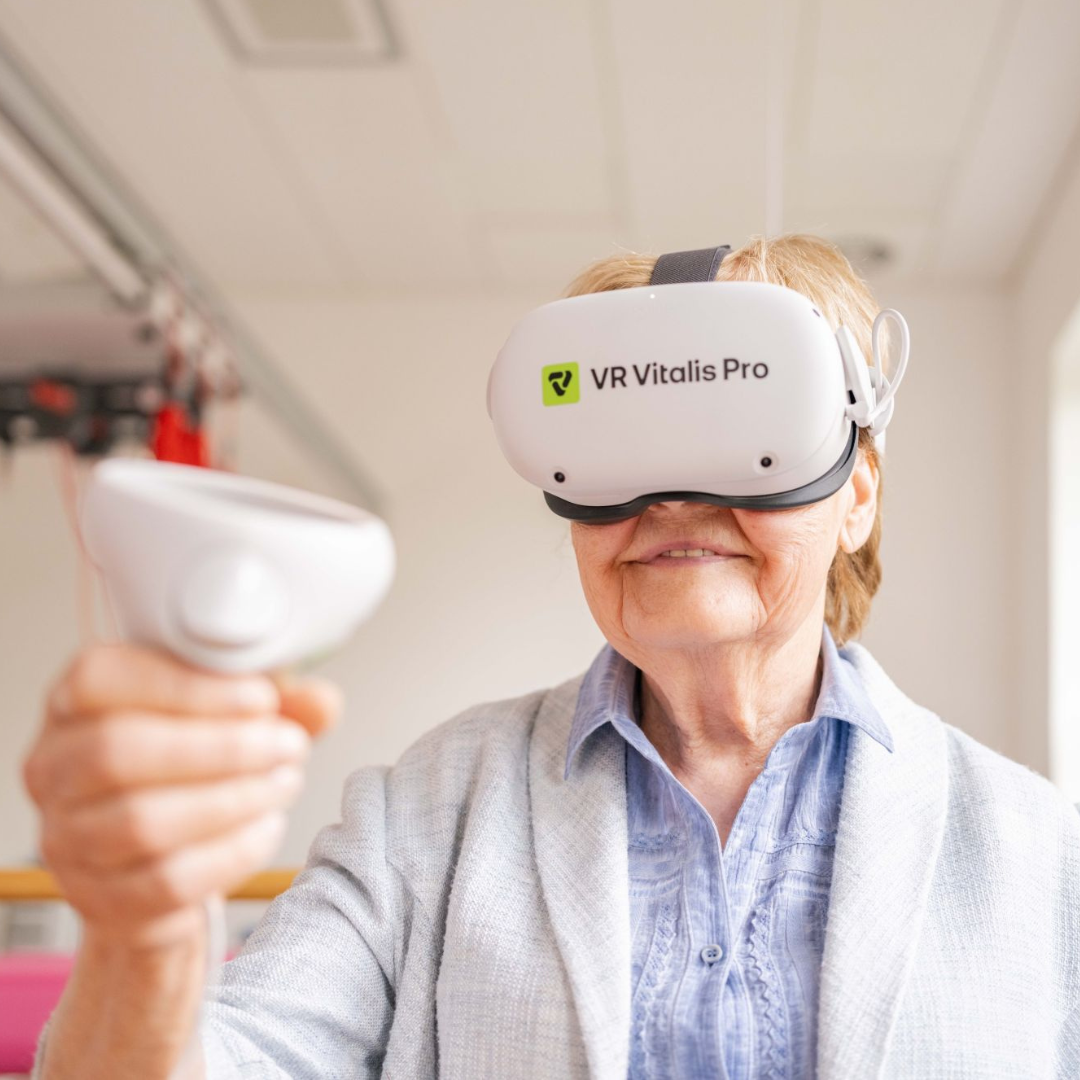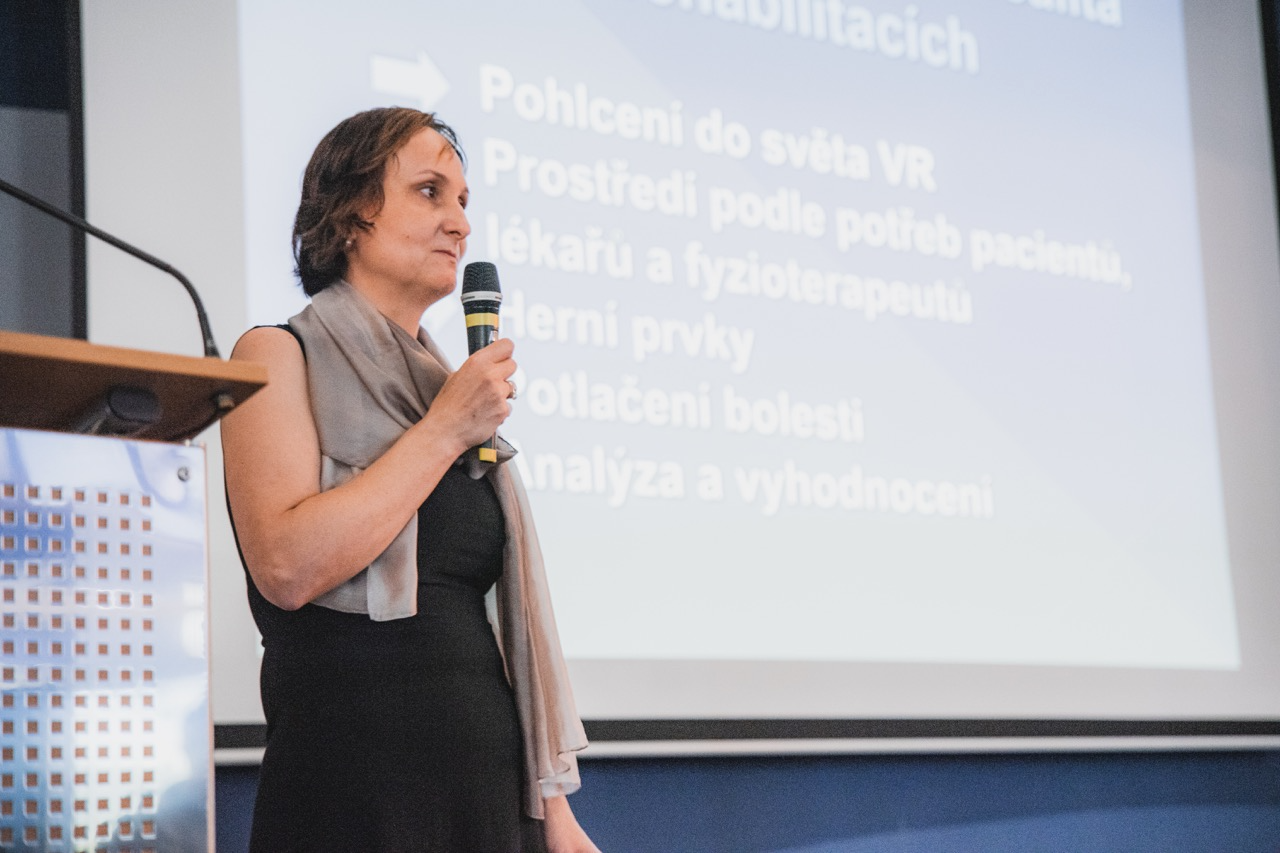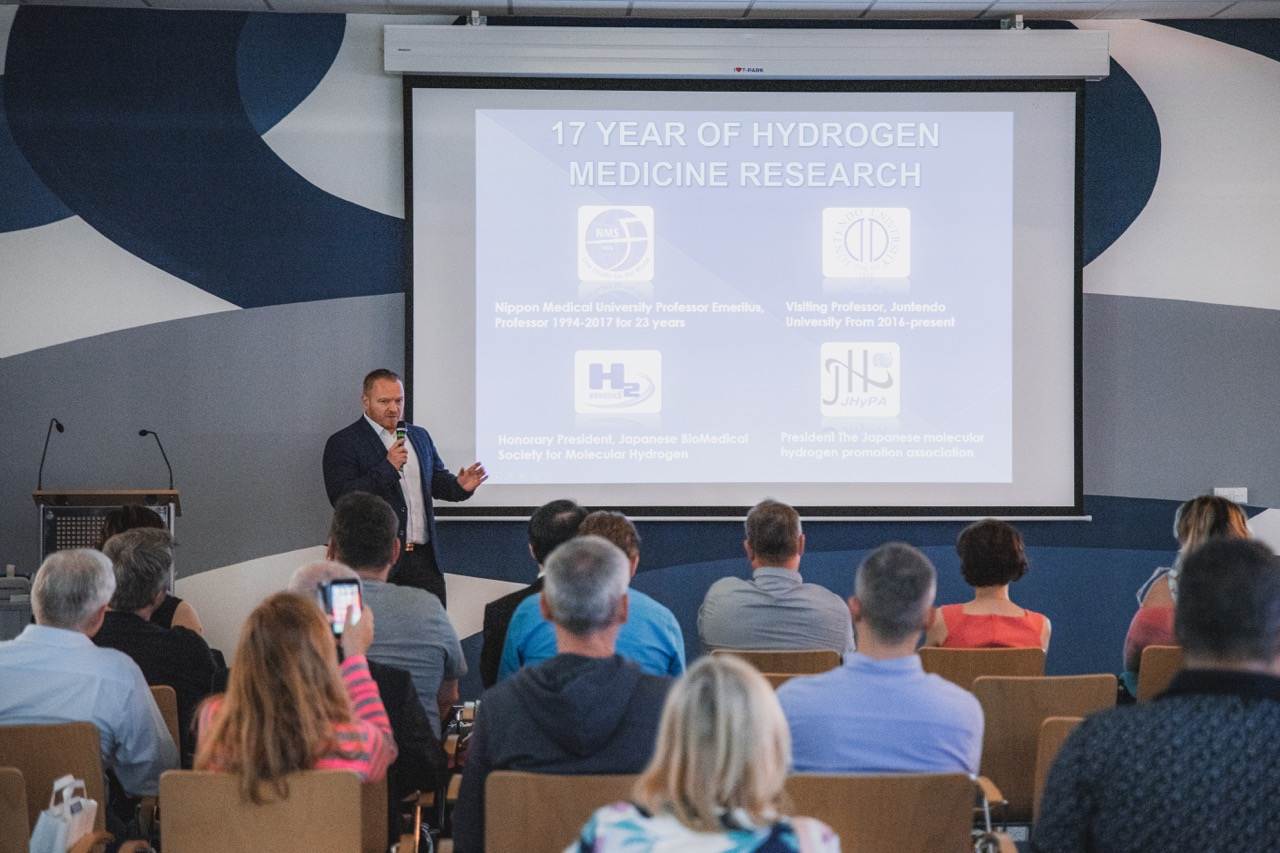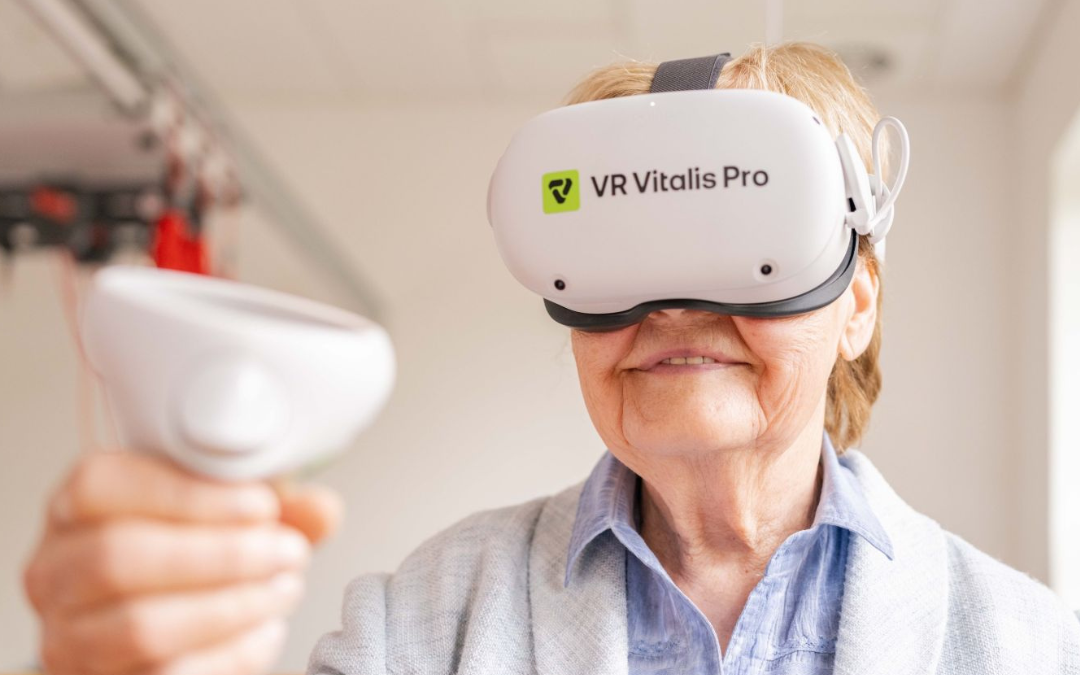
A World First: H₂ Global Group Combines Molecular Hydrogen and Virtual Reality for Groundbreaking Therapy
The Ostrava-based company H₂ Global Group is introducing a pioneering innovation that unites the regenerative power of Molecular Hydrogen® with the immersive capabilities of virtual reality.
“The principle is surprisingly simple,” explains David Maršálek, President of H₂ Global Group. “Inhaling molecular hydrogen amplifies the effects of brain-focused therapies conducted within a virtual environment.” This cutting-edge development, now registered as a Czech patent, opens a new chapter in the field of integrative health technology.
Virtual Scenarios That Heal
During therapy, patients are immersed in realistic virtual situations to which the brain responds as if they were real. This immersive experience enhances rehabilitation, helps reduce anxiety and psychological disorders, and can even boost cognitive performance. “The addition of molecular hydrogen significantly intensifies the therapeutic effect,” adds Maršálek.
While virtual reality (VR) is widely associated with gaming or simulated adventures, it has become a vital tool in modern healthcare. The integration of VR with hydrogen inhalation is a global first. As the hydrogen gas enters the bloodstream via the lungs, it is distributed throughout the body—combining with movement to create a powerful therapy suitable for various medical disciplines.
“When immersed in the virtual world, a person focuses entirely on the experience, distancing themselves from external stimuli and entering a space that actively supports healing,” explains VR specialist Dr Jana Trdá.

A World Patent: Virtual Reality Meets Molecular Hydrogen
“Numerous Czech and international studies have confirmed hydrogen’s ability to restore cellular balance disrupted by oxidative stress. It effectively neutralises harmful free radicals,” says David Maršálek.
“The combination of medical expertise, cutting-edge technology, and molecular hydrogen benefits both patients and practitioners. We’ve applied for a Czech patent for this unique therapeutic approach, which we plan to expand globally.”
In collaboration with H₂ Medical Technologies, VR Life has developed a module focused specifically on hydrogen inhalation, compatible with their hydrogen inhalators and generators.
“Studies have shown hydrogen’s positive impact on performance, endurance, and post-exercise recovery,” adds Professor Shigeo Ohta, Vice President for Science and Research at H₂ Global Group. “Inhaled hydrogen from our generators also accelerates regeneration, for example after post-COVID fatigue, and is effective against numerous conditions due to its anti-inflammatory properties. It has shown promising results in patients with Alzheimer’s disease. The combination of hydrogen and VR is certain to bring extraordinary results.”
A Victorian Greenhouse or a Hydrogen-Powered Tent?
Hydrogen VR therapy can be conducted sitting or standing. At the request of H₂ Medical, VR Life designed a bespoke environment in the form of a virtual Victorian greenhouse filled with flowers and soothing nature sounds, simulating warm, humid air.
“The patient sees animated lungs expanding and contracting with each breath, encouraging coordinated breathing and effective inhalation of hydrogen,” says Dr Trdá. Seated patients use nasal cannulas for hydrogen inhalation while immersed in this calming visual experience.
“For standing exercises, we developed a hydrogen tent that is enclosed and filled with hydrogen-enriched air, allowing users to move freely during VR therapy,” she explains.

Gamified Healing
A major strength of VR therapy lies in its gamification elements. “We apply game-like mechanics to motivate patients during rehabilitation,” explains Dr Trdá.
Each exercise is designed and validated by a team of doctors, physiotherapists and occupational therapists, ensuring both effectiveness and medical accuracy.
“Patients generally feel more comfortable and are willing to train longer when using VR. We receive videos from clients showing clear progress—like a patient with a shoulder injury struggling to raise their arm during conventional exercise, yet lifting it much higher during VR therapy without even realising it.”
VR therapy has already been shown to support recovery after spinal injuries, surgeries, or strokes. It is also used in psychotherapy for treating phobias, anxiety, depression, and eating disorders. VR is proving to be a powerful tool in therapy for patients with Alzheimer’s disease.
The World’s First VR Hydrogen Park
“Combining virtual reality with molecular hydrogen in healthcare inspired us to create the world’s first H₂ VR Park in Ostrava,” says David Maršálek.
“This will be a place for relaxation and enjoyment for children, adults, and seniors alike. Thanks to virtual reality, visitors will be able to ‘travel’ to the sea, mountains, or even experience skydiving—fulfilling dreams that might otherwise remain out of reach. All of this in one place, safely, and with the added benefits of molecular hydrogen.”
Thanks to the generous support of a local Ostrava investor, H₂ VR Park Ostrava will welcome its first visitors in September 2023. Following the innovative H₂ Bike, the H₂ VR Park is another world-class project based in H₂ City, symbolising Czech innovation on a global scale.
